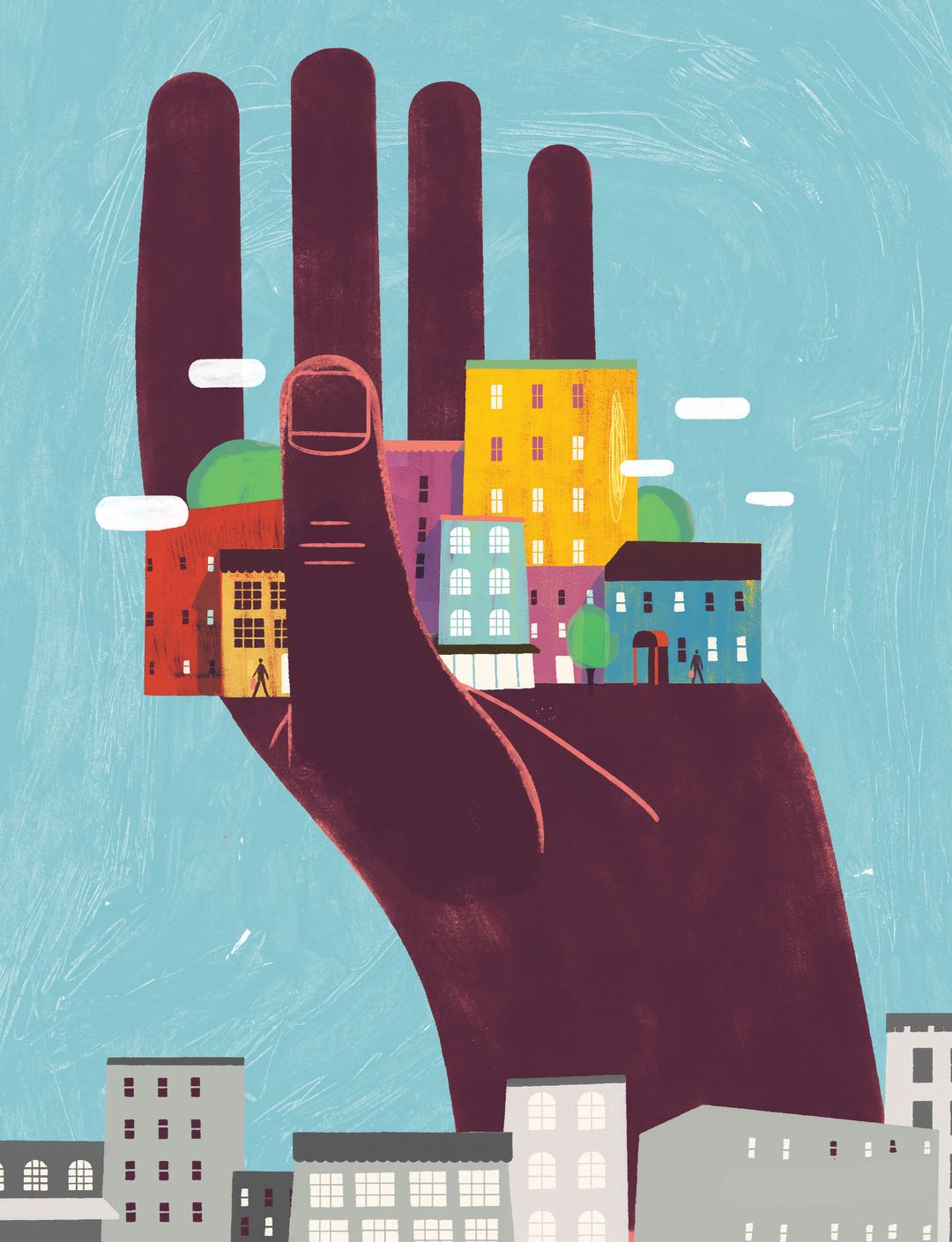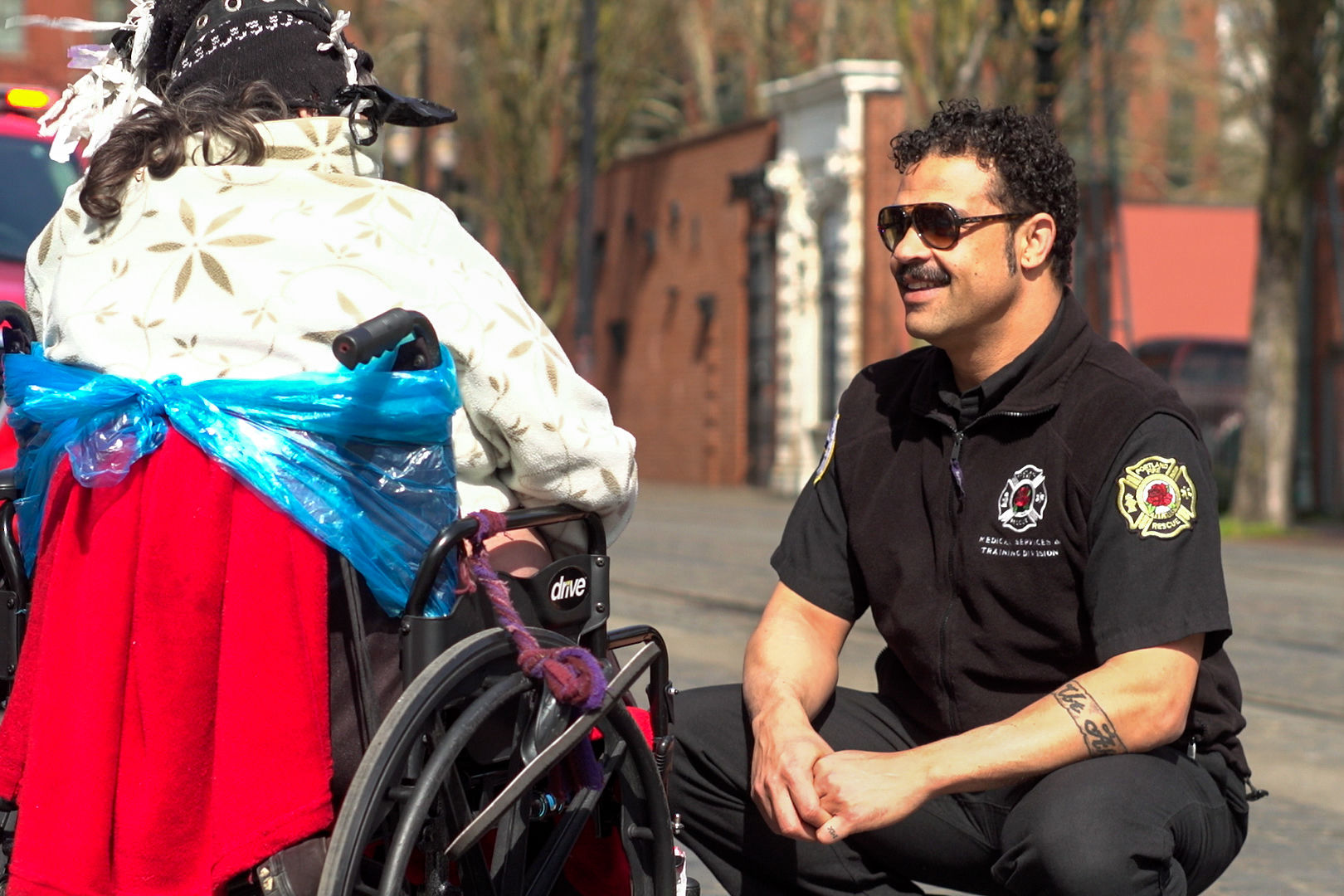Can This Bold Vision of Black Entrepreneurship Reverse Gentrification in Portland?

Image: Keith Negley
It’s just past 1 p.m. on a Wednesday afternoon at Champions Barbershop on NE Martin Luther King Jr. Boulevard. As a half-dozen men get their hair buzzed, a couple of others lounge in cushy black chairs and watch basketball highlights on a flat-screen TV.
“For some, this is like a second home,” says owner Jamaal Lane. “We don’t shun them away, even if they’re not here for a haircut.”
Indeed, Champions is more than cuts, shaves, and sports talk. The shop has helped recruit mentors for Big Brothers Big Sisters. It’s held toy drives. And, of late, customers can even get their blood pressure checked, thanks to a partnership with a nearby clinic. The clippers first buzzed here in 2008. Despite being a relative newcomer, the African American–owned shop now feels like a rare holdout in a rising sea of cultural change. (Just a few steps north, one finds such edible markers of gentrification as pinot grigio–glazed muffins and wood-fired trout.) It’s no secret that soaring rents and home prices have pushed longtime residents, many of them black, out of this part of town. In 1990, North and Northeast Portland counted almost 24,000 black residents; by 2010, that number had been cut in half. Meanwhile, the mix of businesses on corridors like NE MLK, North Williams, and North Mississippi has shifted right along with the area’s demographics.
Now a coalition of highly respected community leaders, businesspeople, and residents hope to make shops like Champions a key piece of an economic revival. They call their vision the Soul District, a roughly three-square-mile chunk of North and Northeast they hope to turn into a boomtown for African American–owned businesses.
“If we don’t put a strategy together, we’ll see the same thing happen with business that happened with housing—all these opportunities that just fell through our fingers,” says Carl Talton, president of the Black Investment Corporation for Economic Progress (BICEP), the group behind the Soul District. “It’s about more entrepreneurs of color. Creating a more stable economic environment for folks of color is the real key to staving off gentrification.”
How does all this happen? Concrete blueprints don’t exist yet, but Talton says the vision will depend on a combination of city support, new capital, and a lot of patience. New construction projects—BICEP board secretary Jeana Woolley hopes for three to five larger developments, probably clustered around NE MLK—are still years away. This spring, BICEP wrapped up a community survey, which gauged neighborhood perceptions, desired services, and challenges facing the black business community. The grander plan includes fostering black-run tech companies, financial services firms, arts organizations, and job training institutes. Organizers want businesses both scalable and visible.
“It’s more than the guy who runs a barbershop,” Woolley says. “It’s more than a nail salon and an Afro-centric clothing store and a BBQ joint. We have African American entrepreneurs who are creating software, building drones, inventing products for the health care industry, running financial service organizations. We want a more realistic picture of black business in 2016.”
For Champions owner Lane, the project is aspirational but vital.
“I don’t want it to become like black people were never here,” he says, “because that’s damn near done.”




